Decision making skills Worksheets for Ages 6-7
10 filtered results
-
From - To
Help your child build essential decision-making skills with our expertly designed worksheets for ages 6-7. These fun and educational resources engage young minds in critical thinking, enabling them to make thoughtful choices and problem-solve confidently. Each worksheet offers practical scenarios and age-appropriate challenges that foster independence and responsibility. By working through real-life situations, kids develop the ability to weigh options, foresee outcomes, and make informed decisions. Perfect for both learners in classroom settings and at home, these worksheets ensure foundational skills are strengthened early on. Empower your child with the tools needed to navigate daily decisions with ease and confidence.
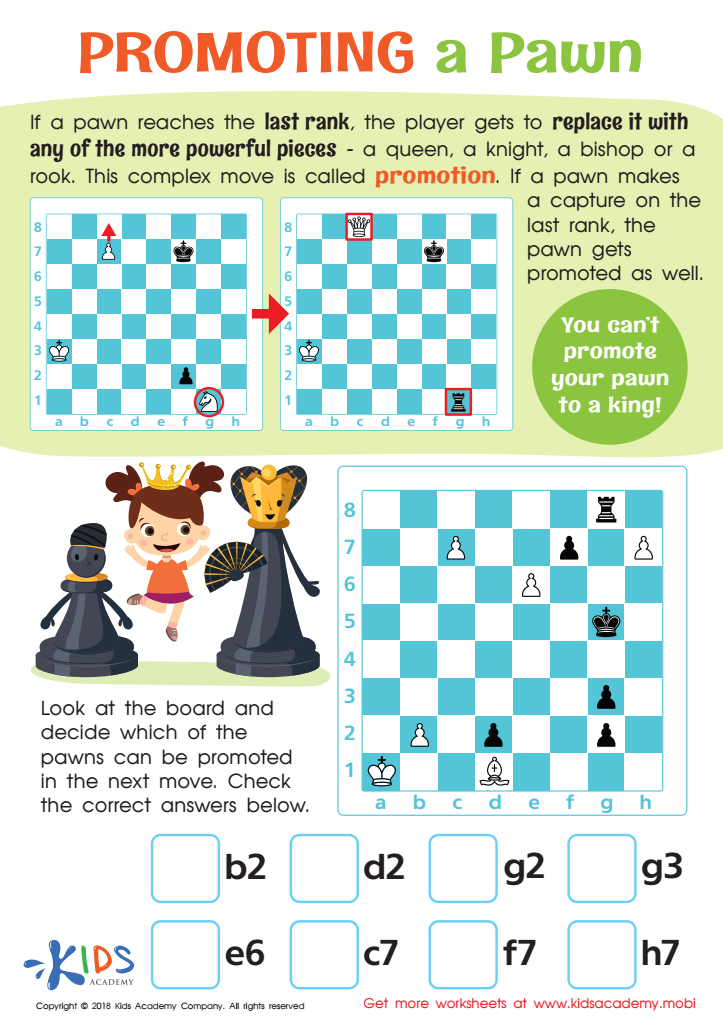

Promoting a Pawn Worksheet
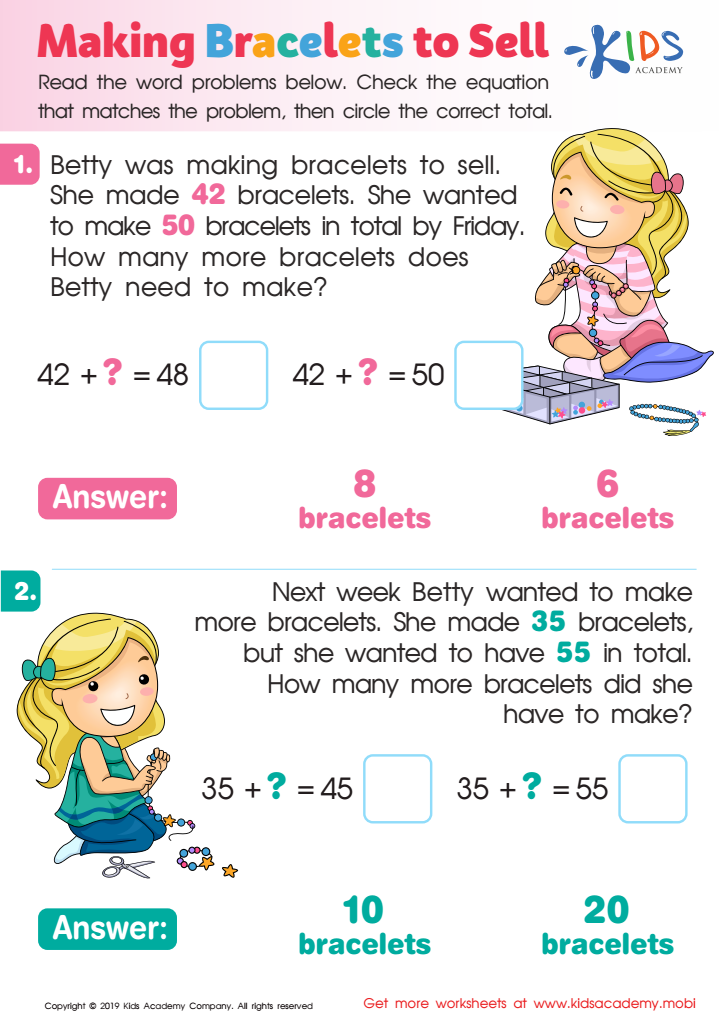

Making Bracelets to Sell Worksheet
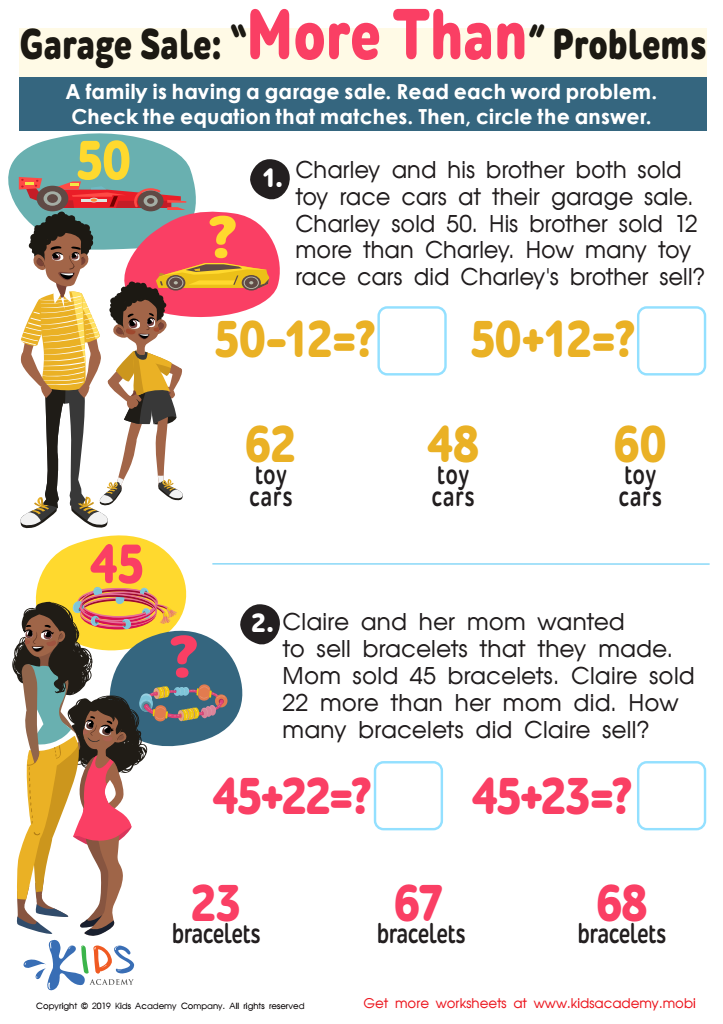

Garage Sale - More yhan Worksheet
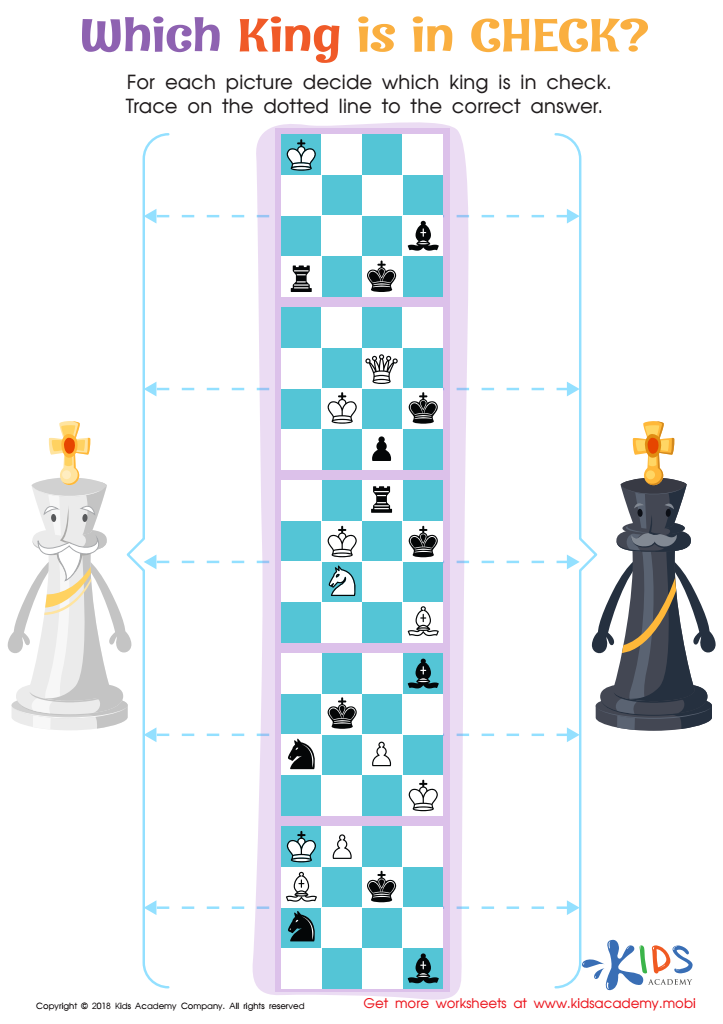

Which King is in Check? Worksheet
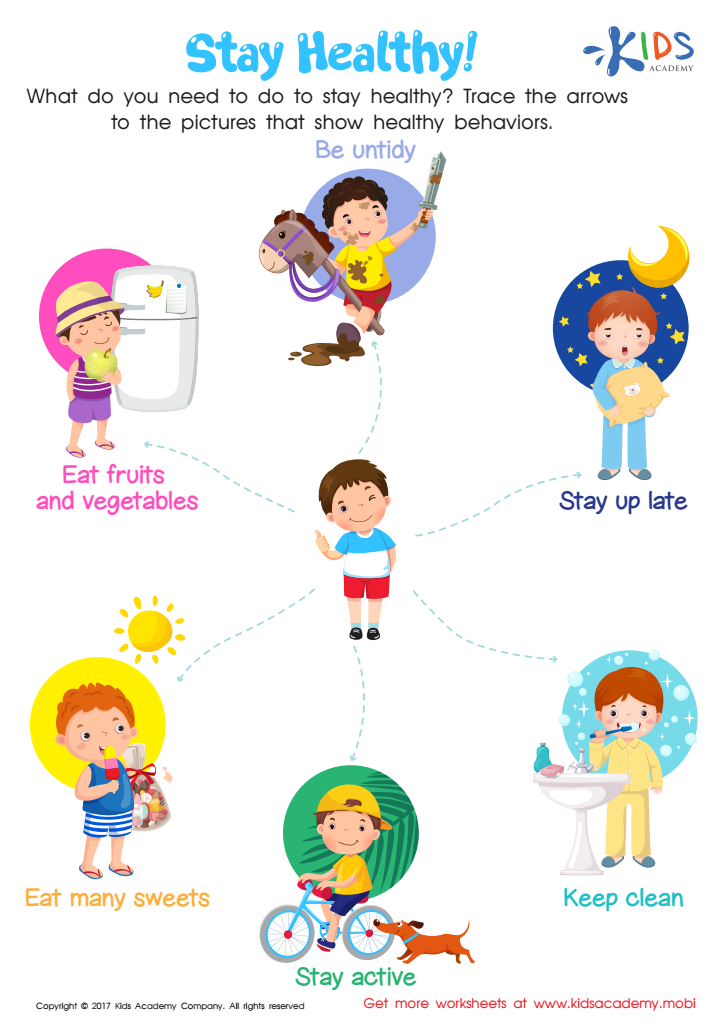

Healthy and Unhealthy Behaviors Worksheet
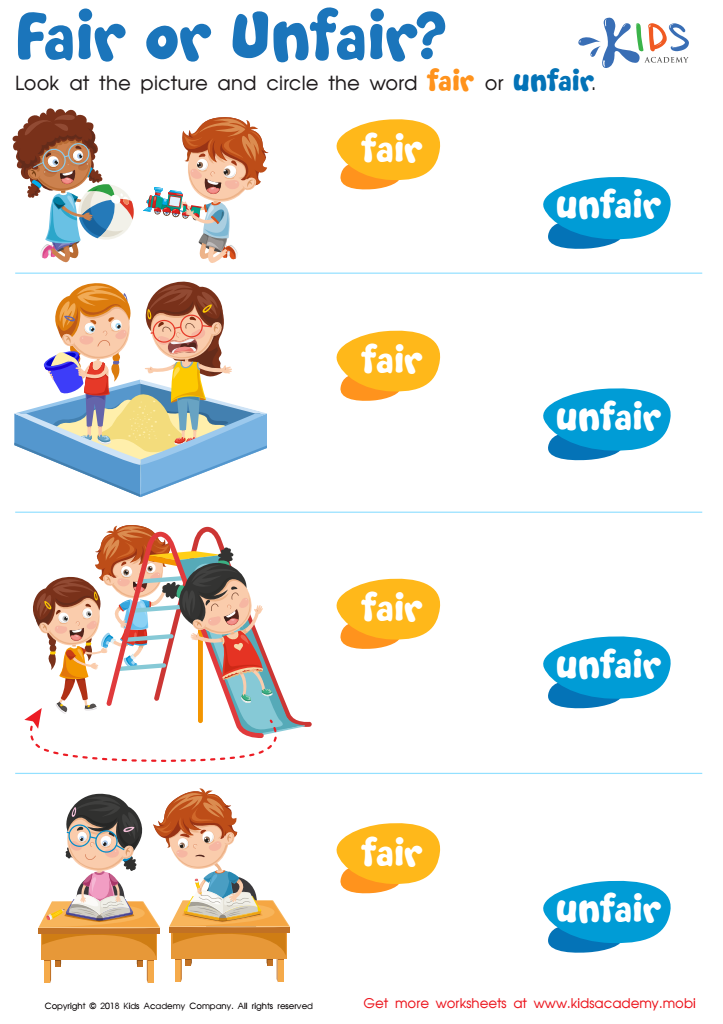

Fair or Unfair Worksheet
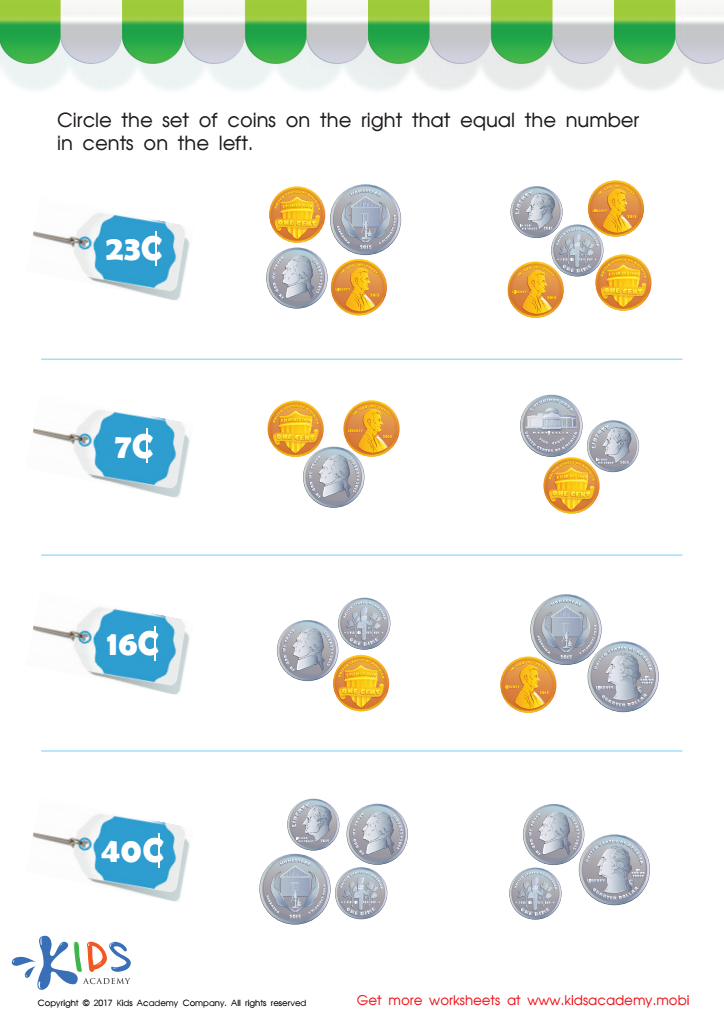

Picking the Coins You Need Money Worksheet
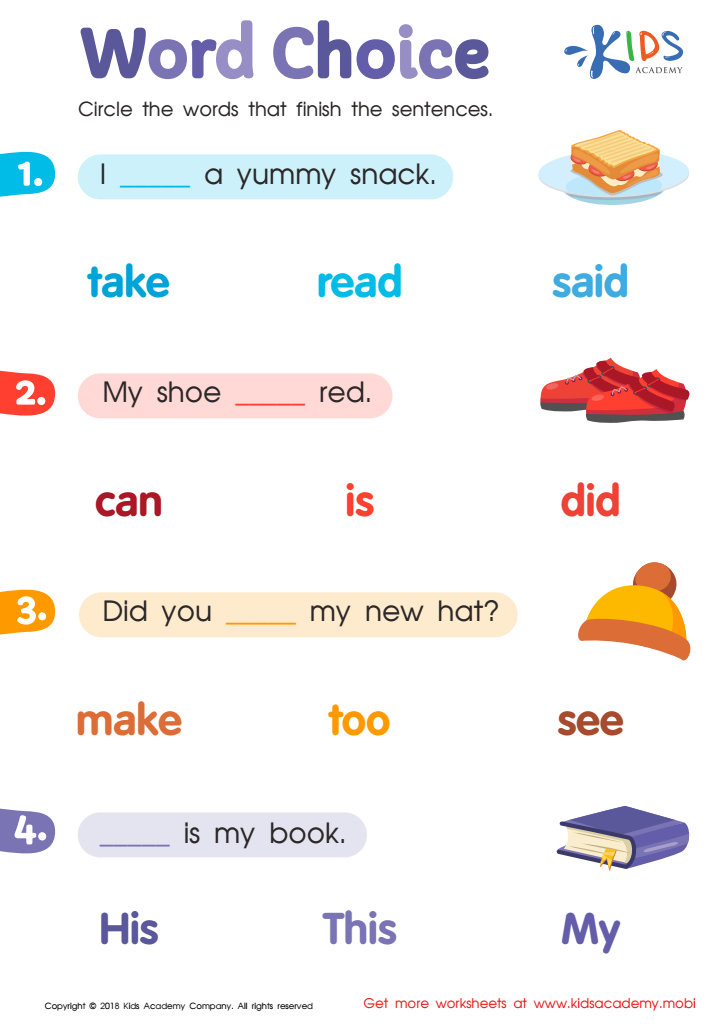

Word Choice Worksheet
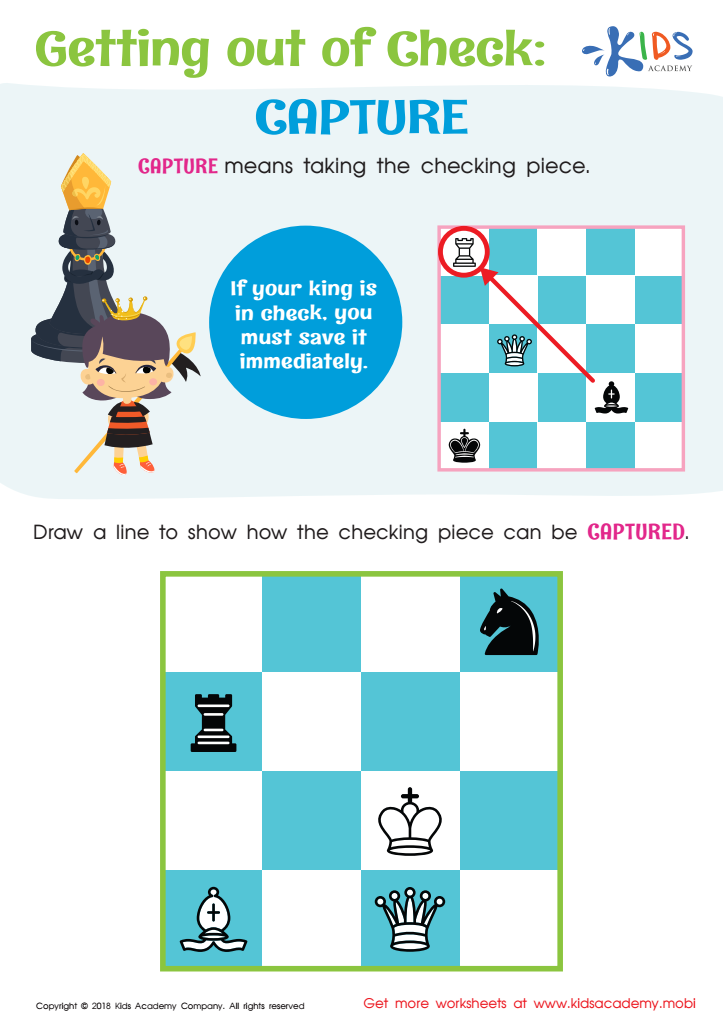

Getting out of Check: Capture
At ages 6-7, children are at a critical stage in their development where they are transitioning from guided activities to more independent learning and social interactions. Developing decision-making skills at this age is crucial for several reasons, and it should be a priority for both parents and teachers.
First, fostering decision-making abilities helps children gain confidence and self-efficacy. When children are encouraged to make choices, whether it’s selecting a book to read or deciding how to tackle a simple problem, they learn to trust their own judgment. This foundational confidence is essential for tackling future challenges both in and out of school.
Second, effective decision-making skills contribute to better social and emotional development. Children learn to weigh options, consider potential consequences, and understand the effects of their decisions on others. This empathetic viewpoint promotes healthier peer relationships and reduces conflicts.
Third, by developing decision-making skills early, children create good habits for analytical thinking that extend into their academic lives. Making informed choices can enhance their ability to comprehend complex subjects, solve problems, and even improve their creativity.
Therefore, parents and teachers should actively engage children in age-appropriate decision-making exercises. This can be achieved through simple daily activities like letting them choose their clothes, decide on classroom tasks, or evaluate minor risk-reward scenarios. Doing so prepares them for a successful, well-adjusted future.
 Assign to My Students
Assign to My Students





















